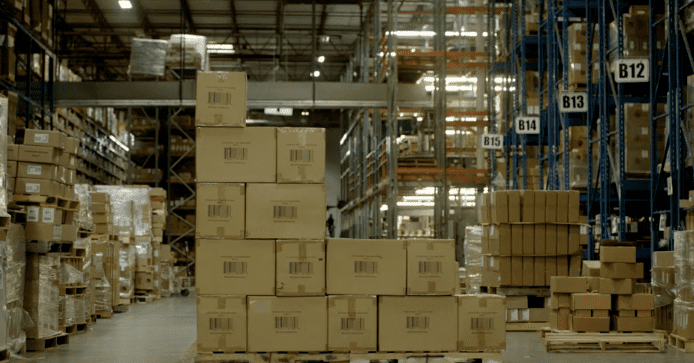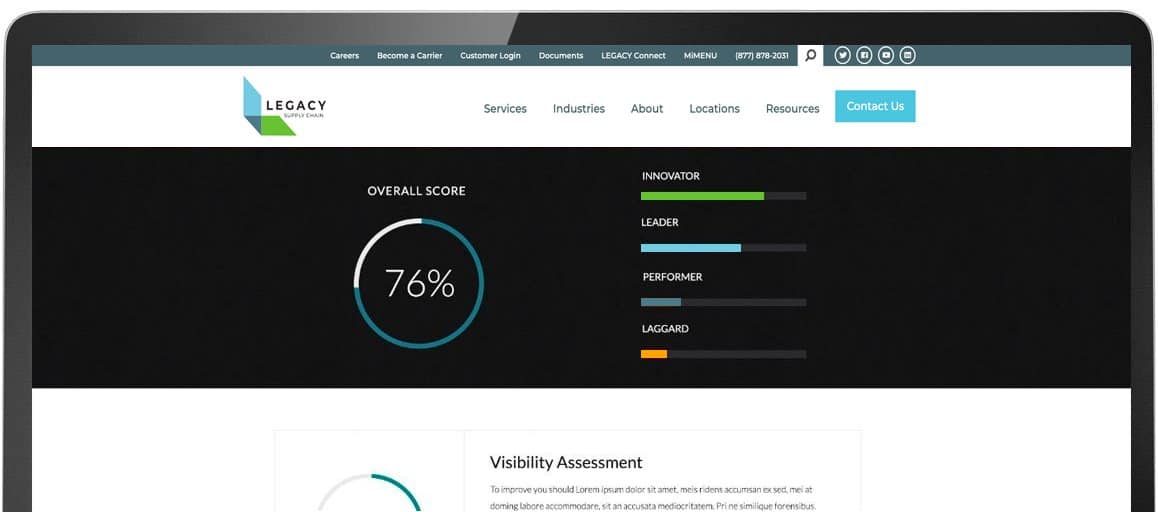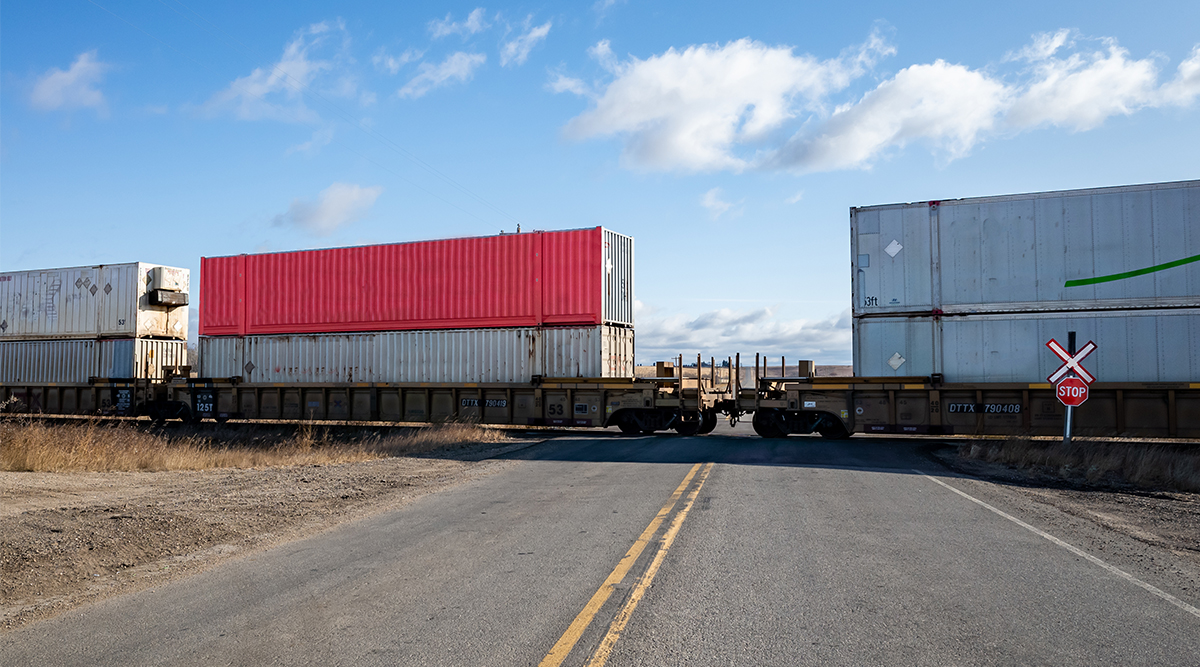Issue 16: Sustainability & ECommerce Become Major Trends
Welcome, everyone, to the Legacy Monthly Shipment, your one-stop shop for all things logistics.
Post-pandemic recovery is well underway, with supply chain professionals the world over reevaluating industry priorities and putting the pieces into place for an eCommerce-driven future. Keep reading to see what’s in store.
Today’s Shipment:
- Continued capacity constraints and chronic congestion threaten peak season traffic.
- FMC launches audit program to investigate complaints of ocean carriers abusing market power.
- ECommerce sales show no signs of slowing down, even as shoppers return to stores.
- An end to the semiconductor shortage is in sight, but capacity will remain tight into 2021.
- Supply chain sustainability is on track to becoming a leading competitive differentiator.
NEWS
Continued Disruption, Strained Infrastructure Prompt Peak Season Concerns
From intermodal service embargoes stemming from chronic railway congestion to reduced truck freight due to capacity constraints in the parcel and LTL sectors, the entire U.S. logistics infrastructure is beginning to buckle under the weight continually being heaped upon it.
In a recent report for The Loadstar, Ian Putzger took a closer look at the widespread effects that rising import volumes have had on the domestic supply chain — and the threat they pose to peak season. As noted in Putzger’s report, Union Pacific recently halted intermodal services from West Coast ports to its Global IV terminal near Chicago in an attempt to combat congestion. Other Class I railways have gone to similar lengths, with Norfolk Southern reducing the number of domestic containers it accepts along major routes and CSX eliminating reservation slots from Bedford Park to Chicago.
On the trucking side of the equation, a growing number of providers have imposed embargoes, limits and surcharges as a last-ditch effort to control capacity, leading to markedly lower shipment volumes and substantial rate increases. All of this puts shippers and consignees in an unenviable position, forced to pay higher rates on top of demurrage fees for containers at rail facilities.
The question remains: What does this mean for peak season? According to Gene Seroka, CEO of the Port of Los Angeles, retailers are already starting to move peak season shipments in anticipation of additional delays and capacity bottlenecks.
Peak season demand is expected to add pressure to and increase costs throughout the overall supply chain as retail sales continue to outpace inventory levels. COVID-19 outbreaks in Asia and rail and port congestion in the U.S. are also contributing to supply chain risk, and carriers have announced rate increases of approximately $2,000 for the month of September.
The reality is that things will get worse before they get better. Looking ahead to 2022, the Legacy team anticipates that the market will begin to moderate as overall demand softens, resulting in some level of stability for shippers in Q3/21.
With that in mind, we advise that clients continue to plan bookings up to six weeks before sailing. The current market might require two to three weeks to confirm a booking, and then another few weeks before actual departure. Plan for delays and additional costs at congested destinations. Finally, we recommend that clients consider moving cargo via Less Than Container Load (LCL) to get inventory consistently moving on the water. LCL is typically more expensive but, in the current environment, the cost difference may be marginal; plus, LCL cargo generally loads before Full Cargo Load.
ANNOUNCEMENT
FMC Announces Investigation into Ocean Carrier Compliance
In an official statement released on July 20, the Federal Maritime Commission (FMC) announced the establishment of “a new audit program and dedicated audit team to assess carrier compliance with the Agency’s rule on detention and demurrage.” Titled the “Vessel-Operating Common Carrier Audit Program,” the initiative will be led by Lucille Marvin, the FMC’s Managing Director, and will focus on the top nine ocean carriers by market share: Maersk, MSC, CMA CGM, COSCO Group, Hapag-Lloyd, ONE, Evergreen, HMM and Yang Ming.
This announcement comes as welcome news to shippers, who have been subject to skyrocketing rates in container markets throughout the pandemic as ocean carriers have closed ranks and formed alliances. This consolidation has led to accusations of carriers abusing market power — a serious concern that has even prompted a White House executive order calling upon the Justice Department to investigate carriers’ shipping practices.
“The Federal Maritime Commission is committed to making certain the law is followed and that shippers do not suffer from unfair disadvantages,” said FMC Chairman Daniel B. Maffei. “The work of the audit team will enable the Commission to monitor trends in demurrage and detention practices and revenue, as well as to establish ongoing dialog between staff and carriers on challenges facing the supply chain. Of course, if the audit team uncovers prohibited activities, the Commission will take appropriate action. Furthermore, the information gathered by the audit process might lead to changes in FMC regulations and industry guidance if warranted.”
The FMC’s announcement was soon followed by a Pennsylvania-based shipper lodging a formal complaint against two global shipping lines alleging carrier price collusion. Though the FMC has limited authority to enforce any real action on carriers regarding rates, the growing groundswell of complaints and lawsuits from shippers could lead to congressional action, granting the FMC more authority to act. That said, those of us here at Legacy think that this is unlikely — and, even if any action were to come to pass, it would take time.
FORECAST
ECommerce Sales Expected to Remain Strong in 2021
Now that a significant portion of the U.S. population is fully vaccinated, shoppers are finally returning to stores — but that doesn’t mean that eCommerce is going anywhere. According to its revised annual forecast, the National Retail Federation predicts that retail sales will exceed $4.44 trillion in 2021, and that eCommerce sales — which are included in the total figure — will grow between 18% and 23% to a range of $1.09 trillion to $1.2 trillion.
These figures come as excellent news for omnichannel retailers and eCommerce pure players alike, as well as point to a larger trend within the industry. Throughout the pandemic, we witnessed a dramatic increase in online sales as homebound consumers turned to the internet for everything from groceries and toiletries to electronics and furniture. Despite capacity constraints and container shortages causing shipping delays and other issues throughout the global supply chain, the vast majority of consumers have embraced eCommerce and intend to continue to shop online. According to a recent survey of U.S. consumers, 29% of respondents said they will shop for items online more than they did during the pandemic. Another survey found that 55% of consumers in the U.S., Canada, the U.K. and Australia said they would prefer to shop online than in stores.
This continued consumer commitment to eCommerce has, naturally, put last-mile delivery under the microscope. Throughout the pandemic, many retailers have offered free shipping as a concession for protracted transit times and unexpected delays. Consumers quickly became so accustomed to free shipping, that 53% now report that they expect brands to offer it indefinitely — and to provide greater visibility into shipments.
BRIEF
Manufacturers Ramp up Semiconductor Production, Capacity
It seems as though an end to the semiconductor shortage may finally be in sight, thanks to recent efforts from the Taiwan Semiconductor Manufacturing Company (TSMC) to increase production.
“We expect to increase output of [microcontroller units] by close to 60% over the 2020 level,” said TSMC CEO C.C. Wei during the company’s earnings call on July 15. “By taking such actions, we expect the automotive component shortage from semiconductor to be greatly reduced for TSMC customers starting this quarter.”
The story behind the shortage is a familiar one: COVID-19 restrictions caused vehicle sales to plummet, leading automakers to drastically scale back production. Semiconductor manufacturers such as TSMC followed suit. Then, when the economy rebounded and demand came back online virtually overnight, automakers scrambled to replenish their parts and materials inventories, only to learn that semiconductor manufacturers had already committed their available supply to customers in the consumer electronics and IT industries. The situation was further complicated by geopolitical tensions between China and the United States and disruptions throughout the global transportation system, which delayed shipments for weeks — sometimes even months — at a time.
In light of this, Wei’s comments during TSMC’s earnings call seem promising; however, he also made it clear that it would take some time for the company to reach its pre-pandemic capacity.
“While the short-term imbalance may or may not persist, we expect our capacity to remain tight throughout the year and into 2022 fueled by strong demand,” said Wei.
REPORT
Against All Odds, Demand for Supply Chain Sustainability Remains Strong
It would be an understatement to say that 2020 — and, so far, 2021 — have placed the global supply chain and all the companies that operate within it under considerable pressure. Yet despite container shortages, capacity constraints, surging eCommerce demand and, yes, a global pandemic, industry professionals say that supply chain sustainability (SCS) remains a top priority.
According to the 2021 State of Supply Chain Sustainability report, published in partnership by the MIT Center for Transportation & Logistics (MIT CTL) and the Council of Supply Chain Management Professionals (CSCMP), “More than 80% of supply chain professionals claimed that the crisis had no impact [on] or increased their firm’s commitment to SCS.” Executives, in particular, were adamant about the importance of SCS, with 83% stating that “COVID-19 [had] either accelerated SCS activity or, at the very least, increased awareness and brought urgency to this growing field.”
Though industry insiders cited multiple different motivating factors, many agreed that changing consumer expectations played a major role, with one executive reporting that sustainability issues were rated by customers as the second-highest concern, just after capacity. Given this growing interest from consumers, it seems as though SCS is on track to become the next big competitive differentiator.
“Our members tell us that now, more than ever before, that the very notion of embedding sustainable practices from within their company’s supply chain delivers real, tangible results,” said Mark Baxa, interim president and CEO of CSCMP. “Competing in today’s global marketplace is not just about the high-quality products supply chains plan, procure, make and deliver. It’s about doing the right thing for the whole of society.”
Check out Legacy’s VP of Transportation discuss shipping dilemmas>>>
We hope you’ve enjoyed this month’s Shipment, and we’ll keep you posted on what’s to come. Until then, check out our blog or resource center for logistics tips, insights and expertise.
This is the Legacy team, signing off.
Get Insights. Stay Ahead.
Get the latest news and insights via email on warehouse improvement, transportation optimization, labor strikes and international shipping rate changes.
Popular Posts
Search Posts
-
6 Cornerstones to a Successful 3PL-Customer Relationship
Hiring a third-party logistics (3PL) provider is a strategic approach for businesses to increase their capacity without expanding their...
+ Read more -
Canadian Rail Strike? – What We Know So Far
On May 1st, CN (Canadian National Railway) and CPKC (Canadian Pacific Kansas City) rail workers voted overwhelmingly to authorize a strike...
+ Read more -
2024 Q1 Freight Landscape: Trends, Challenges, and Predictions
As the first quarter of 2024 comes to an end, here are some observations over the past few months as well as predictions about the trucking...
+ Read more











